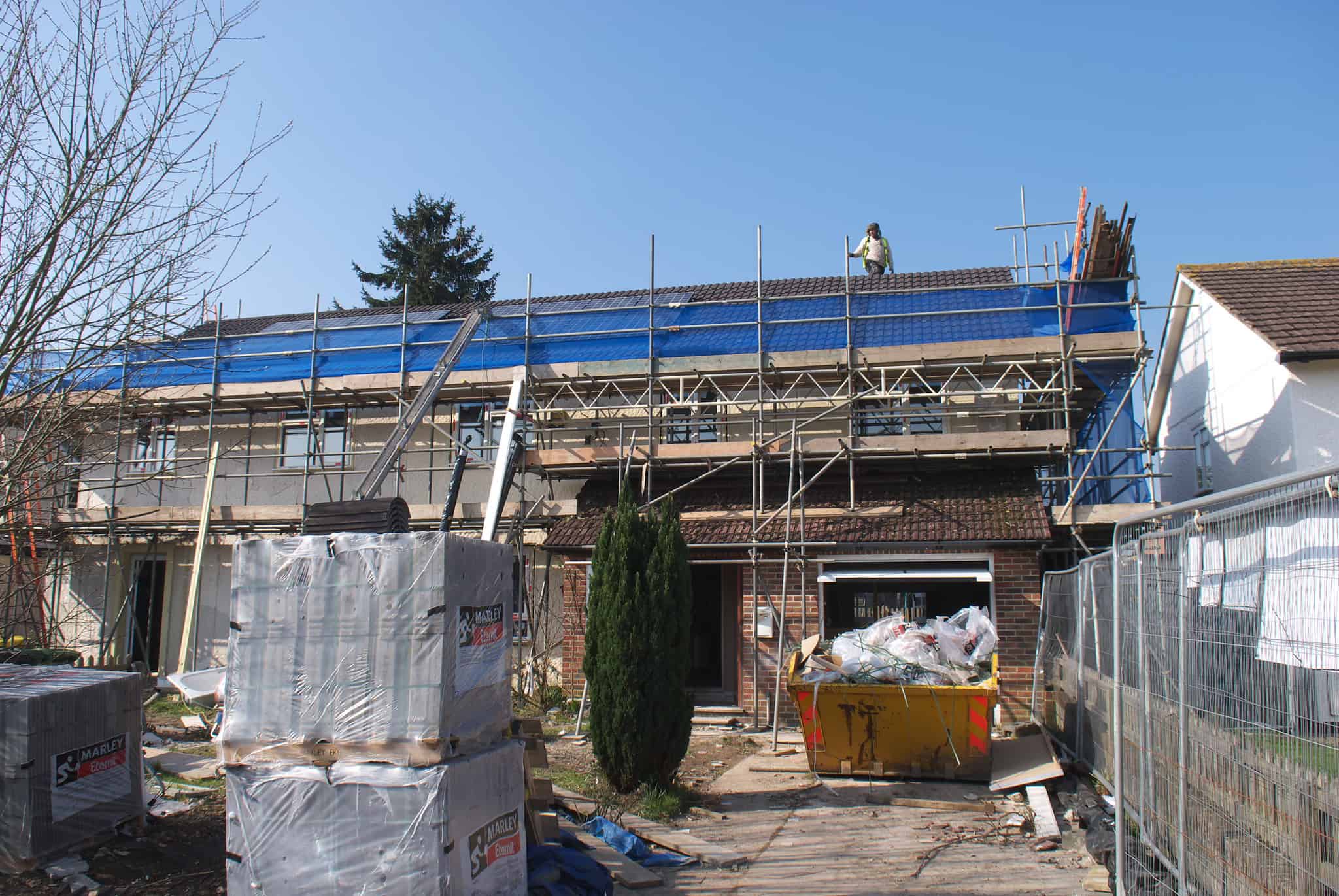This piece first appeared at Local Government Chronicle
Radically reducing carbon emissions from our existing homes is one of the single biggest challenges facing the nation, as we aim to make the transition to a net zero carbon economy.
Our homes are responsible for 35% of UK energy use, and emit 20% of our carbon dioxide emissions.. Furthermore, cold, damp and inefficient homes are unhealthy to live in and can bring misery to residents. With 80-85% of today’s homes likely still standing in 2050, and the UK’s housing stock still one of the most inefficient in Europe, our focus must be on bringing about a retrofit revolution, and fast.
UK Green Building Council strongly supports calls by the Construction Leadership Council for a national retrofit strategy seting out a long-term policy and funding plan for home retrofit, developed in partnership with industry. A national strategy will build the confidence industry needs to invest in upskilling its workforce to deliver retrofit at pace, andincrease consumer appetite and unlock private investment in the retrofit market.
Central government must also acknowledge that it’s not going to solve the retrofit challenge alone, through a wholly top-down approach. The need for local knowledge and high levels of co-ordination across multiple actors means that local authorities must play a key role, and for this they need central government support and a clear funding stream in place.
Of course, different local and combined authorities will have different resource and capacity constraints, and political willingness to lead. When it comes to delivering retrofit, there are a number of different roles they can play, including:
- Facilitation – local authorities can act as convenor to bring a ‘coalition’ of willing individuals and groups together
- Marketing and communication – a key, and relatively resource-light role for local authorities is to provide trusted information for residents on retrofit.
- Coordination – local authorities can act as the ‘lynchpin’ in terms of coordinating action on home retrofit.
- Being a ‘trusted’ partner – research shows that local authorities are consistently more trusted than national government and other stakeholders. Supporting third party retrofit schemes can help increase their reach and impact.
- Supporting the growth of local skills and supply chain – working with the supply chain to promote accreditation and capacity-building for whole house approaches.
- Partnering with the private sector to facilitate retrofit finance to all residents, regardless of tenure.
- Delivering deep retrofit on social housing – developing ambitious targets for local authority-owned and social housing provides an opportunity to immediately stimulate the supply chain.
So what are the barriers to action, and how can councils overcome them?
In 2019, we ran workshops around the country to understand the barriers faced by authorities. These included: a lack of national strategy and long-term funding, short- term, stop-start policies, a lack of skilled and trusted installers, and a perceived lack of householder demand.
The sheer range of challenges highlights the need for local authorities to take a holistic approach – solutions will need to overcome a range of barriers in order to have an impact. Thinking holistically also helps when raising the profile of retrofit within council departments to leverage resources. Drawing on the co-benefits, such as better resident health, can secure wider buy-in.
As a first step, we suggest that local authorities read our Retrofit Playbook for local and combined authorities. The playbook was written by an expert steering committee, and consulted on with our members and the wider industry. It covers the following areas and offers detailed guidance and case studies on everything from setting retrofit targets and creating a strategy through to working to ensure local skills and supply chain are in place to deliver whole house retrofit.
The Playbook suggests that authorities should convene a coalition of willing partners in the area to take forward and help resource development of a retrofit strategy. A key step is understanding the LA’s current circumstances – mapping political and stakeholder engagement, and the data and resources at your disposal. It also offers advice about how best to engage with residents, depending on their motivation to act, their life-stage (e.g. moving home) and psychology. We suggest that authorities should also investigate setting up or supporting a ‘one-stop shop’, bundling multiple services together for householders. Evidence shows solutions that ‘hand-hold’ people through the whole process, with independent advice from a trusted source, have the greatest chance of success.
We recently carried out market research which suggested that most householders are attracted to the idea of a whole house plan, especially knowing up-front how to sequence measures. But our research in the privately-owned sector suggests most people don’t think about retrofit in these terms until it is explained to them. Frustratingly, traditional grant schemes have often prioritised single measures – discouraging this effective ‘whole house approach’.
The research also showed that householders can also be very attracted to the idea of self-sufficiency – such as installing solar panels on their roof, that might let them ‘drive for free’ with an electric car. A feeling of ‘future-proofing’ is appealing – especially to those on fixed incomes like retirees. And of course householders’ decisions are strongly affected by the length of time they expect to stay in their current home.
Finally, please work with the UK Green Building Council and other co-ordinating bodies to share knowledge and experience. The challenge of decarbonising homes can seem overwhelming – but through partnerships and sharing knowledge, local authorities can have a huge impact on local carbon emissions and the lives of residents.
UK Green Building Council has shared insights through Ashden’s Local Authority Hubs network – an initiative helping councils collaborate and get support as they tackle important climate challenges.

